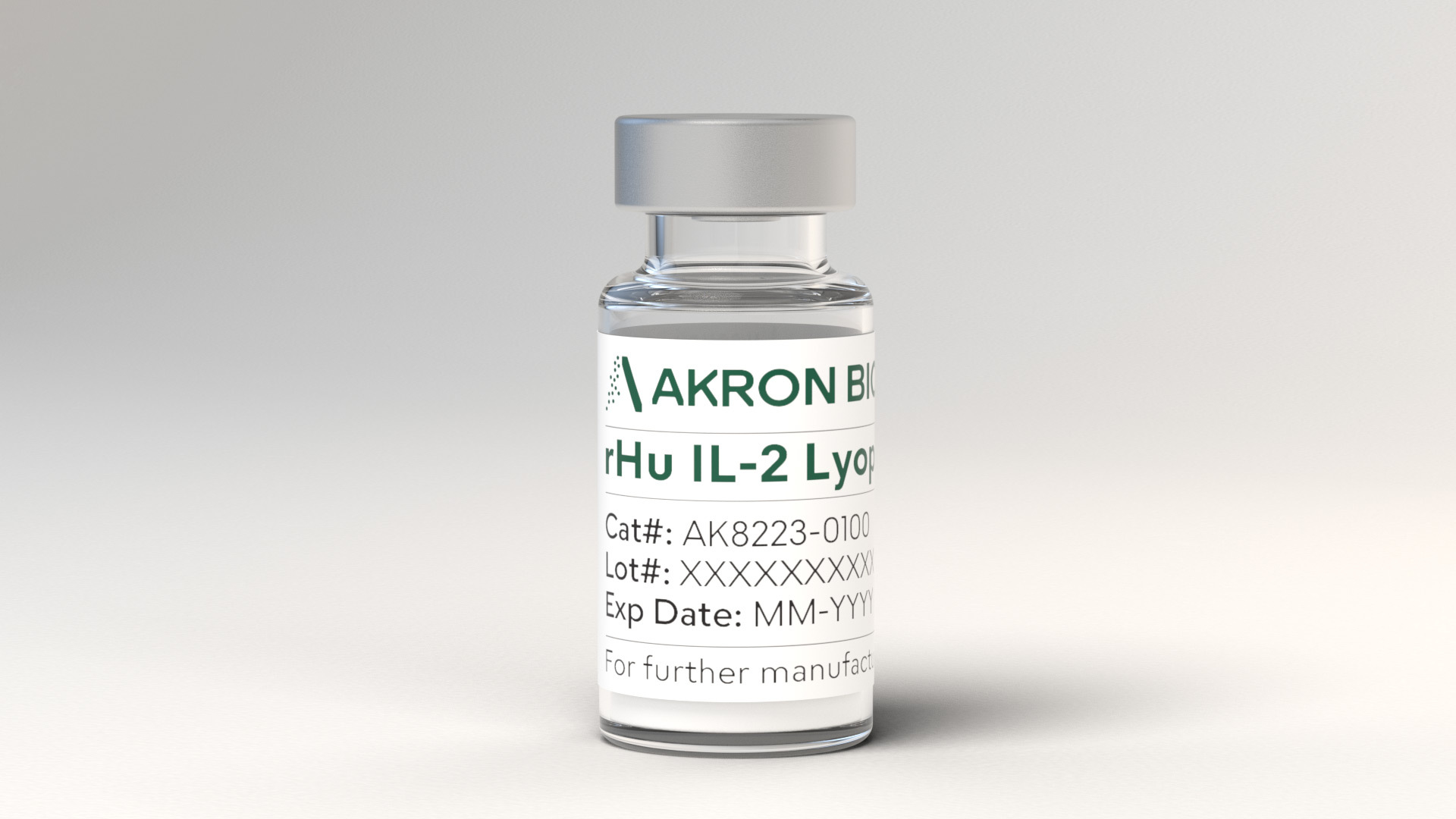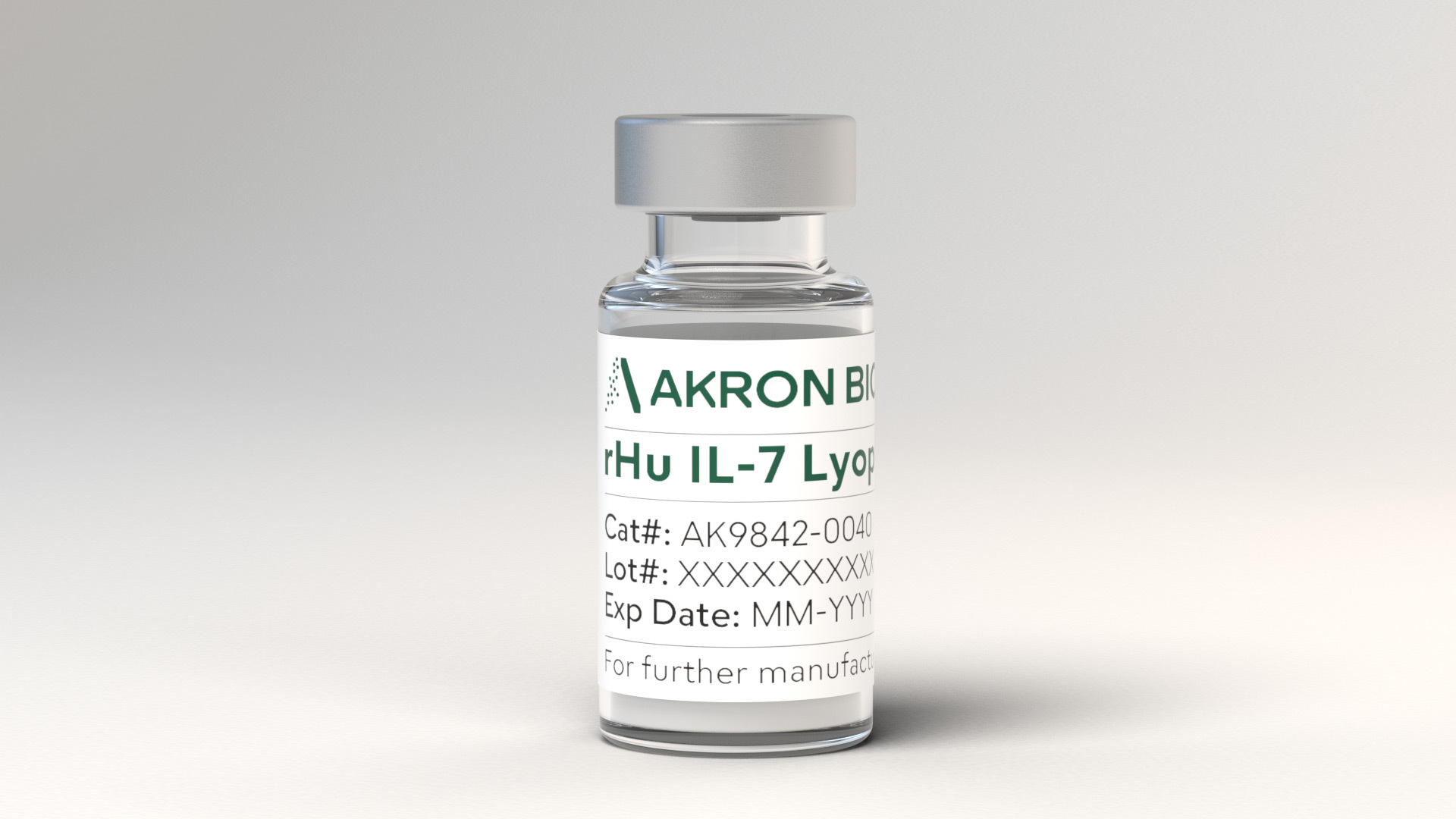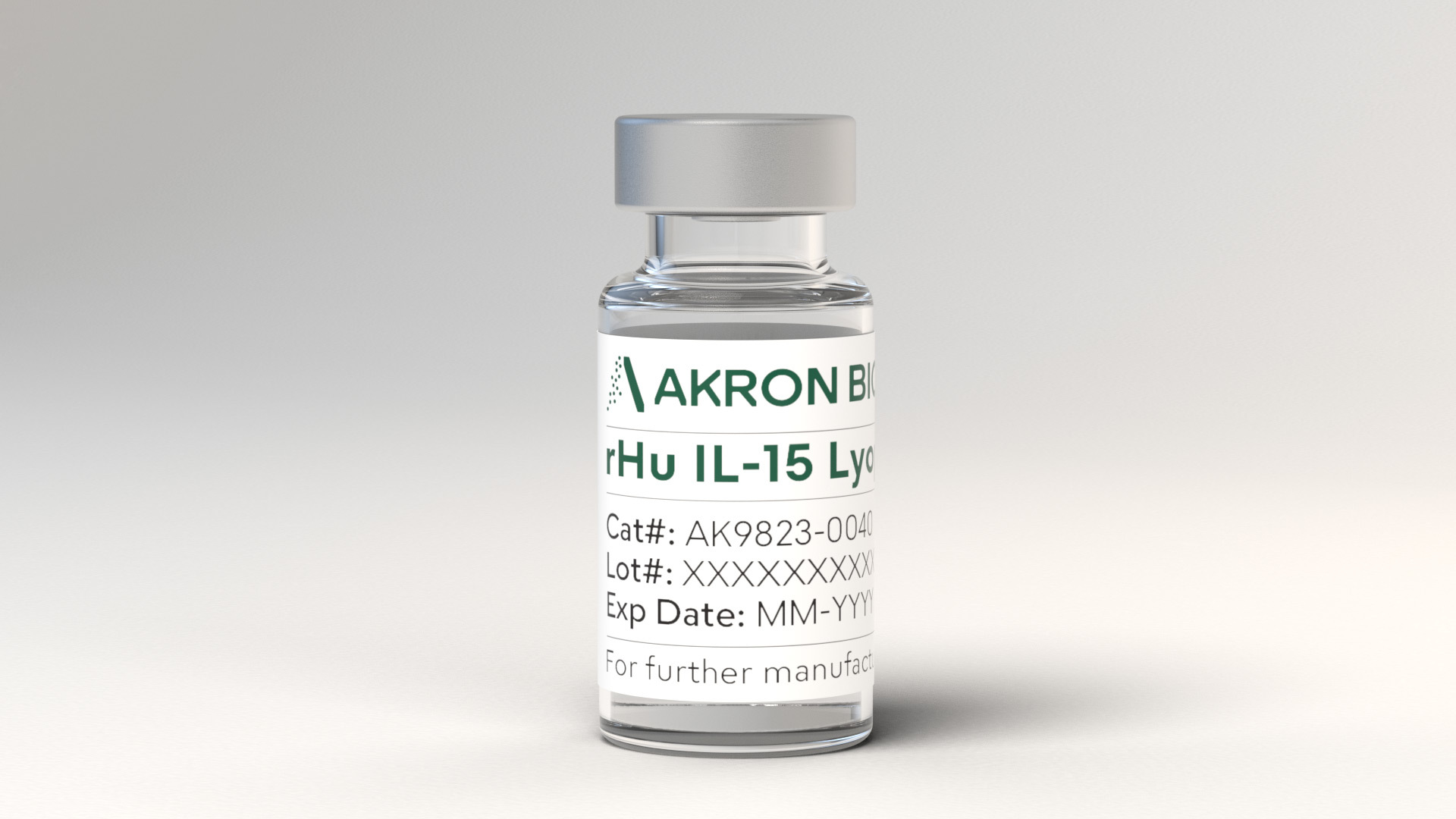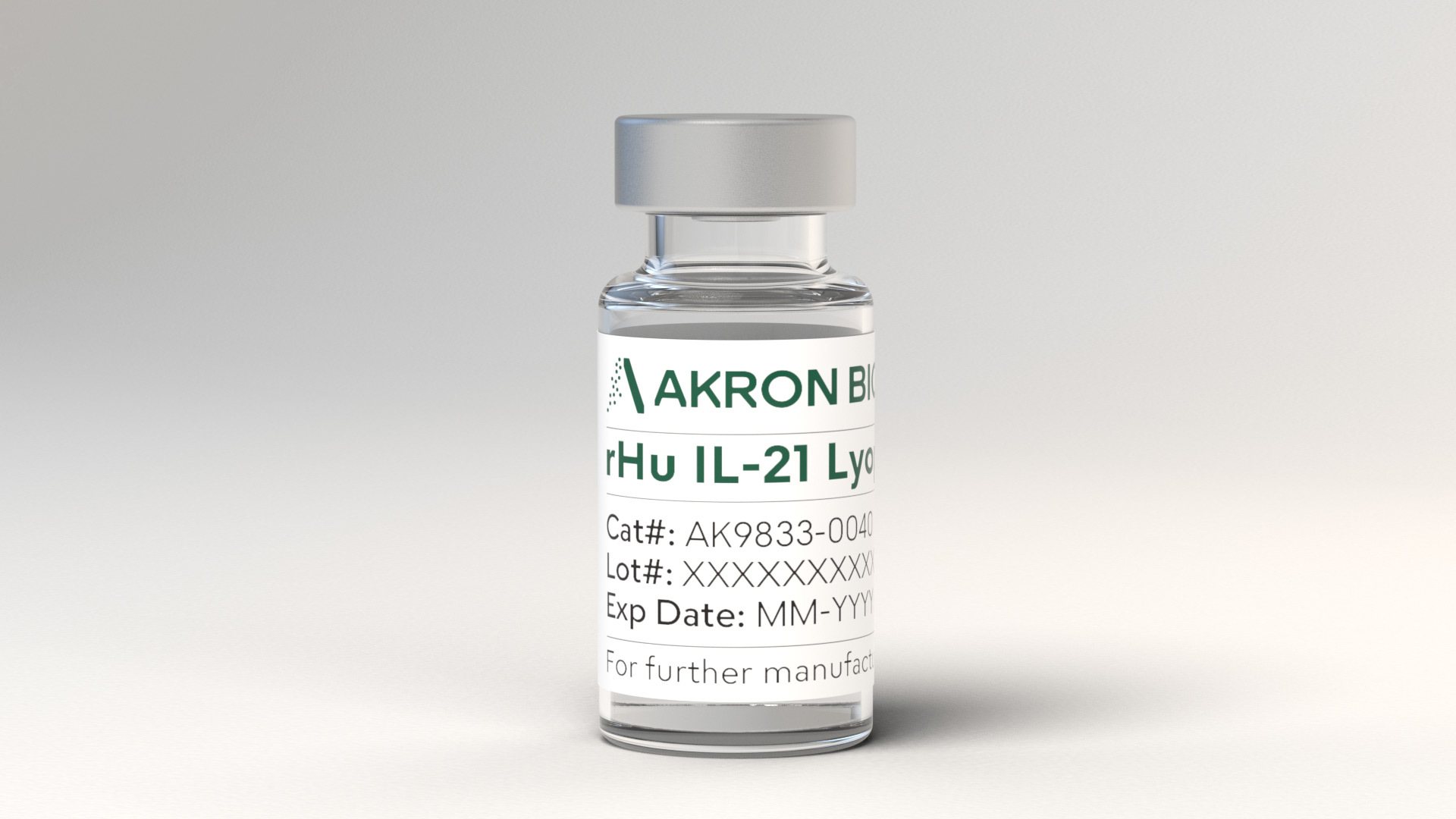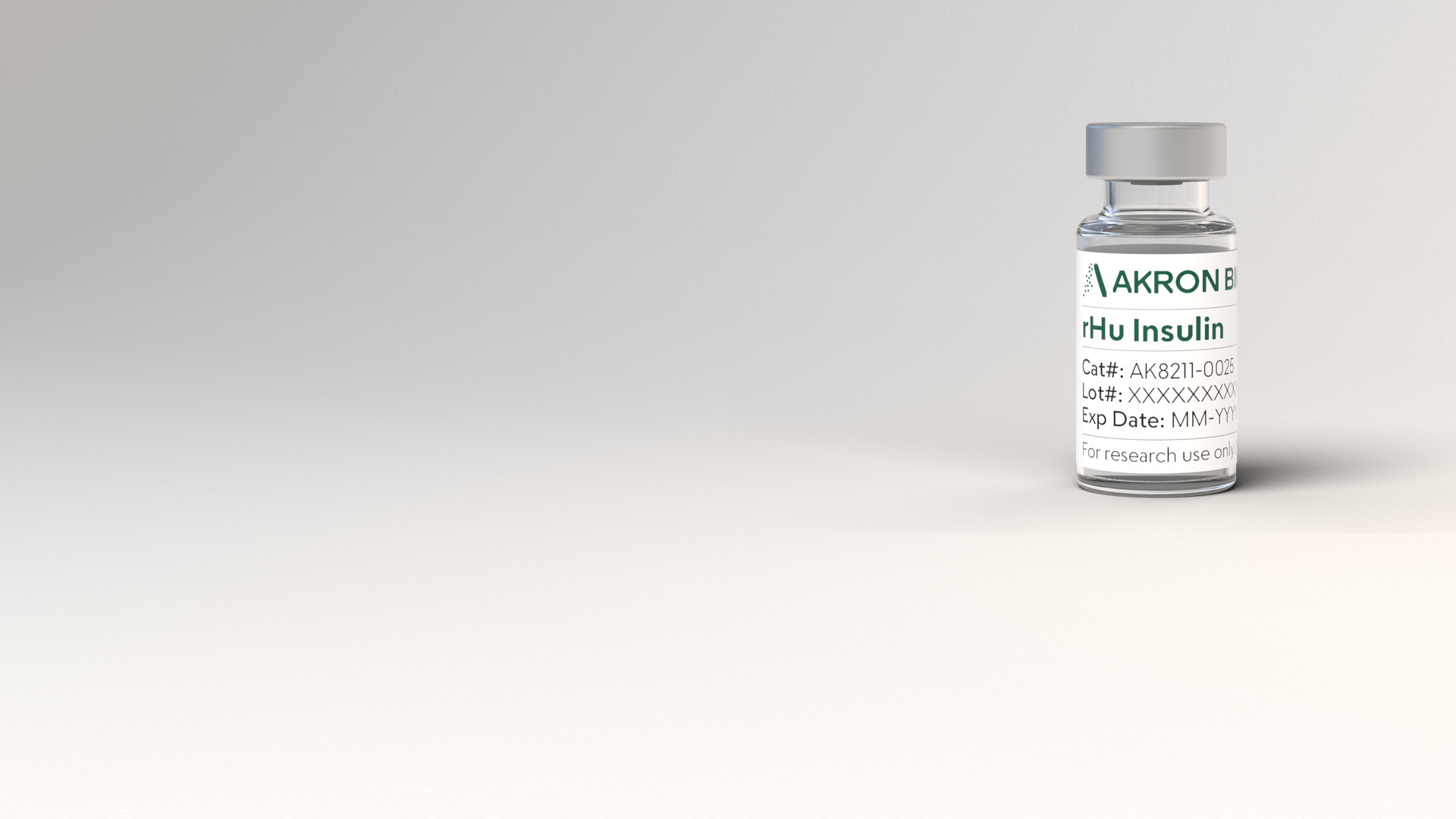
cGMP rHu Insulin
Pharmaceutical level raw material for cGMP manufacturing.
See why everyone is choosing Akron growth factors.
Akron’s Recombinant Human Insulin (rHu Insulin) products are manufactured following all relevant cGMP guidelines for ancillary materials and are supported by a Type II Master File (MF), which can be referenced by the FDA during your drug or biologic application process. Our rHu Insulin amino acid sequence is identical to native human insulin. Extensive physico-chemical characterization studies have been conducted and similar quality attributes are found when compared directly against Novolin® R (insulin human injection).
Akron’s rHu Insulin is a 5.8 kDa, glycosylated, heterogeneous dimer human growth factor analog expressed in Pichia Pastoris. The A chain contains 21 amino acids which is linked via two disulfide bonds to the B chain containing 30 amino acids, for a total of 51 amino acids. It is purified in a pharmaceutical facility without the use of histidine tags and nickel columns. Validated analytical test methods and specifications are used per the USP Human Insulin monograph, which includes Endotoxin and Total Viable Count testing performed on the final product. The lyophilized product is packaged in vials and available in either 100 mg or 1 g aliquots.
Active Substance
• Negligible BSE/TSE risk for all media components
• All raw materials are compliant, controlled, and traceable under Akron’s Quality Management System (QMS)
• Robust physico-chemical characterization and comparability against Novolin® R (insulin human injection)
Manufacturing
• Type II eCTD MF (#027051) on file with FDA
• Tag-free pharmaceutical processing
• Kilogram-scale production capacity
• Validated analytical methods and specifications per USP monograph
Quality
• Relevant cGMP guidelines used in manufacture, testing, and release
• USP <1043>, Ancillary Materials for Cell, Gene, and Tissue-Engineered Products
• EP 5.2.12, Raw Materials of Biological Origin for the Production of Cell-based and Gene Therapy Medicinal Products
• ISO 13485:2016, Medical devices - Quality management systems - Requirements for Regulatory Purposes
• ISO/TS 20399-1-3:2018, Biotechnology - Ancillary Materials Present During the Production of Cellular Therapeutic Products
• High Purity, Low Endotoxin - Endotoxin and Total Viable Count testing per USP
Stability
• 24-month shelf life
• Store at -20 °C
• Transport with dry ice
• Protect from light
Reconstitution
Reconstitute the lyophilized product in 0.05N HCl to create a stock solution between 1-10 mg/mL. From this stock solution, dilutions from 1 mg/mL and less can be made in any aqueous solution such as PBS, saline solution, culture medium, WFI, etc. Neutral pH can be achieved using NaOH. Avoid repeated freeze-thaw cycles.
For Use Statement
For research use or further manufacturing use in ex vivo cell therapy applications. This product is not intended for direct in vivo use or for direct clinical use as a drug, therapeutic, biologic, or medical device.
• Appearance
• Loss on Drying
• Zinc
• Specific Activity (Blood Glucose Bioactivity)
• HPLC
• Peptide Mapping
• A-21 Desamido Human Insulin
• Other Related Proteins
• High Molecular Weight Proteins
• Single Chain Precursor
• Host Cell Derived Proteins
• Residual DNA
• Total Viable Count
• Bacterial Endotoxins
Insulin is one of the most well characterized proteins in history. It was the first protein hormone to be discovered, the first protein to be fully sequenced, and the first protein to be synthesized with recombinant technology. In vivo, insulin’s primary function is the regulation of glucose metabolism. It stimulates cells to uptake glucose, inhibits glucose production in the liver, inhibits the breakdown of lipids and proteins, and enhances the synthesis of proteins. It is produced by beta cells in the pancreatic islets and its mis-regulation is responsible for the widespread disease diabetes mellitus.
Aliquot Sizes & Formats
Lyophilized (100 mg) Cat. # AK9844-0100
Lyophilized (1 g) Cat. # AK9844-1000
